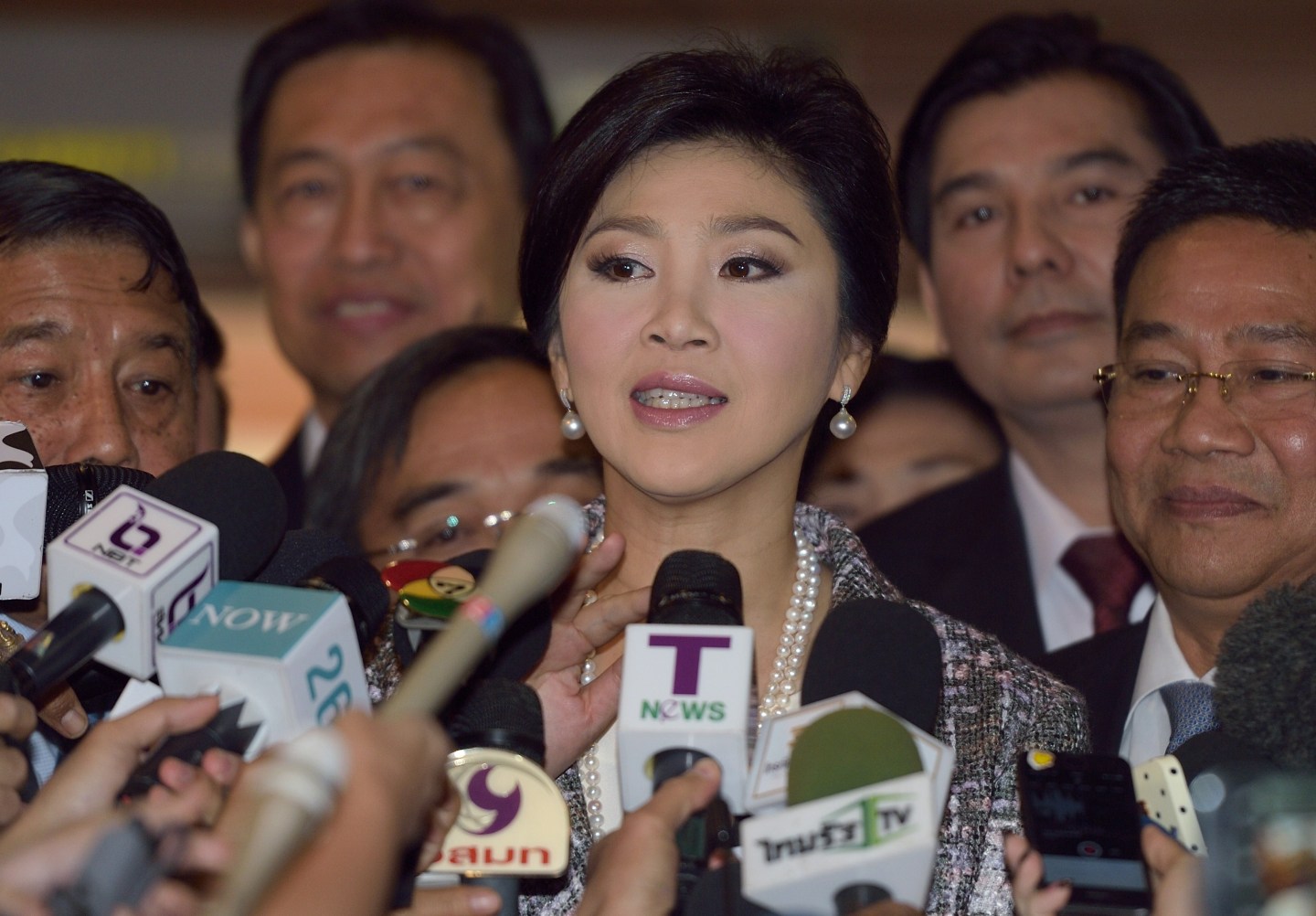This article is published in partnership with Time.com. The original can be found here.
Thailand’s military-stacked legislature voted en masse on Friday to impeach former Prime Minister Yingluck Shinawatra, who was deposed through a court ruling days before the kingdom’s armed forces launched a full-scale putsch on May 22.
However, the ill-fated plan, which paid farmers above market prices for their crop regardless of quality, backfired and blew a $15 billion hole in the Thai economy.
On Thursday, Yingluck derided her impending impeachment and accompanying five-year banishment from the kingdom’s political landscape as a violation of her “basic rights,” during an address to the country’s Parliament.
The 47-year-old has kept a low profile since General Prayuth Chan-ocha seized power and launched an unprecedented campaign to bridle dissent and quell a half-year of polarizing, and often deadly, street demonstrations.
Following Friday’s vote, analysts say the political persecution of Yingluck and her supporters will likely calcify the ever widening divide in the country between the rural and working-class masses, who largely back the populist Shinawatra political machine, and the royalist establishment based in Bangkok.
“They are trying to ban these people from politics for as long as they can so that there’s basically no opposition to whatever the military junta and its allies are going to do politically for the foreseeable future,” Saksith Saiyasombut, a Thai political analyst and popular blogger, tells TIME.
Yingluck also faces a maximum of 10 years in prison after the country’s attorney general pledged Friday to indict her for negligence and abuse of power over the same botched rice scheme.
The impeachment and imminent criminal prosecution of Yingluck now runs the risk of enraging the Shinawatra clan’s partisan supporters, better known as the Red Shirts, who have remained largely dormant in the wake of the coup and its accompanying crackdown.
“This will only exacerbate the political schism we have right now,” says Saksith.
Thailand has been bogged down in unceasing episodes of political discord since Yingluck’s brother, Thaksin Shinawatra, was first removed from power during a bloodless coup almost a decade ago. Political parties deemed loyal to Thaksin have been deposed through two putsches and three controversial court decisions since 2001, despite being undefeated at the polls.
“Today Yingluck joins her brother as another ‘undying political martyr,’” says Verapat Pariyawong, a Thai legal expert and visiting scholar at the University of London, by email. “While the Shinawatra camp may face some difficulties in the coming years, it has now become even more difficult for millions of Thai people to move beyond them.”






